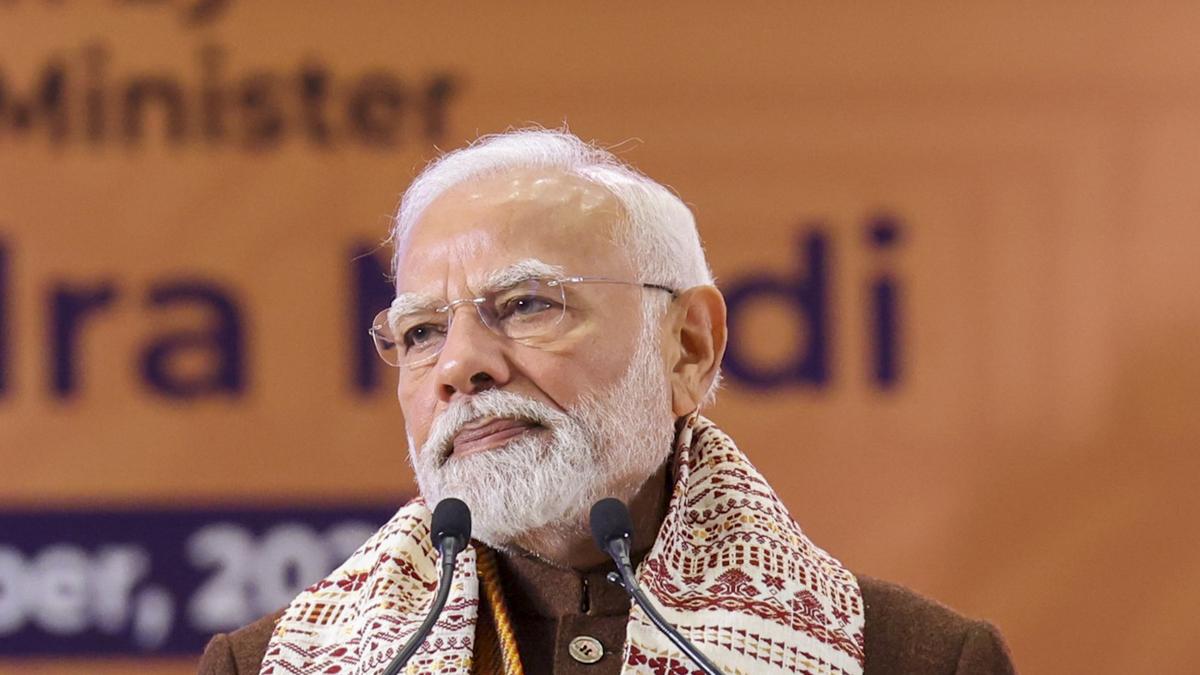
“Disappointing” says U.S. in sharp response denying BJP’s ‘anti-Modi agenda’ accusation
The Hindu
U.S. denies BJP's allegations of targeting Modi and Adani, sparking tensions and accusations of political conspiracy.
The U.S. reacted sharply on Saturday (December 7, 2024) to the Bharatiya Janata Party’s allegation that the U.S. State Department was behind targeted attacks against Prime Minister Narendra Modi and Indian businessman Gautam Adani, denying the accusations and saying they were “disappointing”. In response to the series of social media posts released by the BJP on “X”, which included accusations that it was behind an investigative reporting portal OCCRP, the U.S. government said it had been a “champion of media freedom around the world”, and does not influence editorial decisions by these organisations.
“It is disappointing that the ruling party in India would make these kinds of accusations,” a spokesperson for the U.S. Embassy in New Delhi told The Hindu. “The U.S. has long been a champion of media freedom around the world. A free and independent press is an essential component of any democracy, enabling informed and constructive debate and holding those in power accountable,” the spokesperson added, in an apparent reference to the BJP handle’s allegation that news reports including a story in the Financial Times linking Mr. Modi and Mr. Adani and a series of reports in the OCCRP (Organised Crime and Corruption Reporting Project) on the Adani group’s projects in Kenya and Myanmar, had been funded by the US State department. In addition, the BJP had referred to OCCRP reports on Pegasus spy software used for the surveillance of Indian journalists and on Russian President Vladimir Putin.
This is the first time the ruling party has directly attacked the U.S. government for stories that are critical of the Modi government which it said had a damaging impact on “India’s image”. The strong statements exchanged indicate a new low in ties between New Delhi and Washington, that have been under a strain over indictments in the case against an Indian official for an alleged assassination plot on Gurpatwant Singh Pannun, a Khalistani activist in the US, and a number of other developments in the U.S. Earlier this year, the MEA had summoned a senior US diplomat after the U.S. State department had commented on the arrest of Delhi Chief Minister Arvind Kejriwal, and had sharply objected to the U.S. State Department’s report on Religious Freedom in India.
The latest controversy comes days after the U.S. Department of Justice and the Securities and Exchanges Commission filed indictments in U.S. courts implicating Mr. Adani and members of his family and group for bribery, exchanges fraud and other violations of U.S. law.
The Ministry of External Affairs has thus far refused to comment on the statements made by both the BJP and the U.S. Embassy response. Last week, the MEA spokesperson had distanced the government from the Adani indictment.
The U.S. Embassy spokesperson did not deny the allegation it was funding of groups like OCCRP, but said that the U.S. government “works with independent organizations on programming that supports professional development and capacity building training for journalists,” adding that this “programming does not influence the editorial decisions or direction of these organisations”.
The BJP, had, in its posts and a number of press statements cited an investigation in the French media agency Mediaparte to back its claims that the U.S. government through USAID, the State department’s development assistance arm, had an inordinate influence over the reportage undertaken by OCCRP, that is shared with a consortium of news agencies worldwide.











